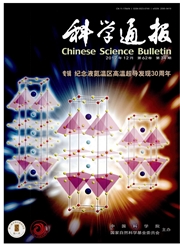

 中文摘要:
中文摘要:
陆生蜗牛化石氧同位素组成能够记录古降水和古温度信息,但古环境因子影响蜗牛壳体氧同位素组成的机理仍不明确,因此越来越多的研究侧重于对现代蜗牛壳体的环境效应进行探讨,而野外采样研究很难分离出单独环境因素的贡献,研究基于控制变量法的原理设计了两套实验方案,以Achatina fulica蜗牛为实验对象进行实验室培养,结果表明:(1)在相同的温湿度下,不同来源的环境水所饲养的结果均有一定的差异,并且得到分馏值与环境水δ18O值的相关性方程分别为:y=-0.4571x+1.4749,R2=0.9794(生菜叶组),y=-0.2179x+4.1566,R2=0.6821(玉米粉组);(2)在环境水来源单一、温度区间较小的情况下,温度与壳体氧同位素关系的经验方程为103lnα(Aragonite-H.2439×106T-2+48.033(R2=0.5666),这与无机碳酸盐分2O)=-1馏的相关实验结果趋势相反.实验结果表明,温度恒定的条件下,环境水是影响蜗牛壳体氧同位素组成的主导因素;在温度区间较小的条件下,温度对壳体氧同位素分馏的影响并不明显;研究结果还说明外加碳酸盐对壳体文石氧同位素组成几乎没有影响,但食物中所含的水分对蜗牛壳体δ18O值产生了不可忽视的影响。
 英文摘要:
英文摘要:
The oxygen isotope compositions of land snail shell fossils can record the information of paleo-precipitation and paleo-temperature. However, it remains unsolved that how the paleo-environmental factors affected the isotope compositions of snail shells. More recent studies focus on the environmental implications of modern snail shells in order to reconstruct paleo-climatic conditions. This study used laboratory-cultured land snail Achatina fulica to investigate the contribution of different environmental factors on the isotope composition of land snail shell. We designed two sets of experiments according to the principle of controlling variables method. It revealed that (1) under the constant incubator humidity and temperature condition, the δ 80 values of the sampled snail shells vary with those of water used in the experiment, and, the regression equations are y=-0.4571x+l.4749(R2=0.9794) for snails fed lettuce and y=-0.2179x+4.1566(R2=0.6821) for snails fed corn respectively; (2) under the single water source and the constant temperature condition, the relationship between temperature and the fractionation factor can be expressed as the following empirical equation: 1031nα(Aragonite)=-1.2439×106T-2+48.033(R2=0.5666), which is in contrast to the result of inorganic carbonate fractionation. Our results indicate that: (1) the environmental water is the dominant factor influencing the oxygen isotope composition of snail shells under the constant temperature condition; (2) temperature plays a negligible role on the isotope fractionation of snail shells when it varies within a small range; (3) the 6180 value of snail shell is not affected by inorganic carbonate, instead by the water:contained in the food.
 同期刊论文项目
同期刊论文项目
 同项目期刊论文
同项目期刊论文
 期刊信息
期刊信息
